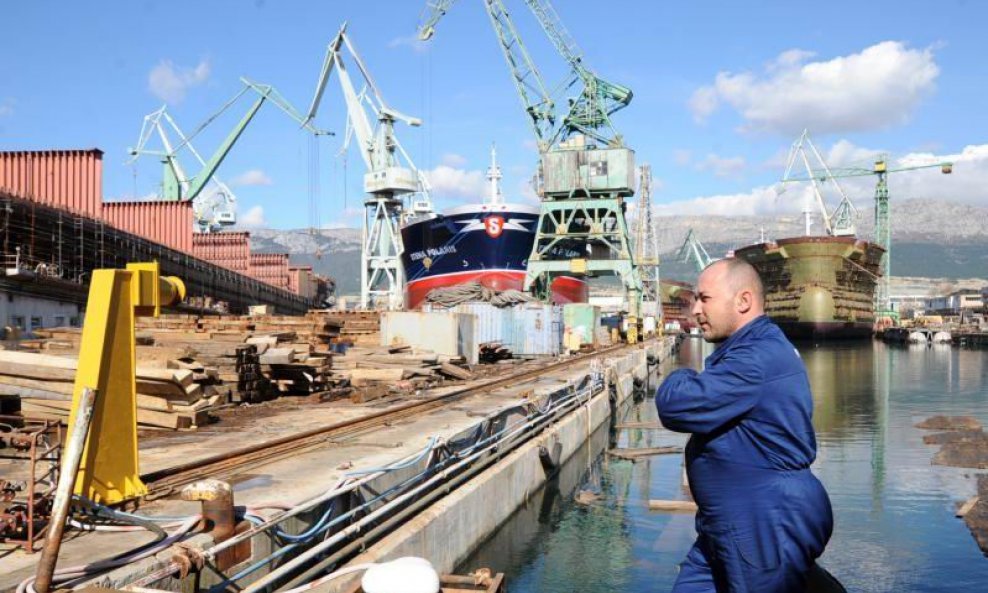The Croatian government introduced into Parliament on Thursday a bill regulating the rights and obligations of the shipyards during the restructuring process, which provides that liabilities arising from state guarantees issued to the shipyards, estimated at HRK 11.3 billion, would be transferred to public debt.
The government is doing all it can to save the Croatian shipyards, and calls for 'revolutionary measures' that can be heard in public would not secure jobs for the shipyard workers, Prime Minister Jadranka Kosor said.
"It is unacceptable that today, when we are at the final stage of EU accession negotiations and near closing Chapter 8 (Competition Policy), there are people who disinform the public by saying that they will do this or that, announcing revolutionary measures. That's out of the question. It wouldn't change anything, it wouldn't secure jobs and it woudn't ensure a better tomorrow for the people working there," she said. "It's clear that the present system is not viable and that this burden cannot be put on taxpayers' backs," she added.
The bill provides for three courses of action -- transferring into public debt any liabilities that may arise from the restructuring programme and state guarantees, settlement of tax debt after privatisation, and property-rights relations. Tax debt and public taxes would be offset with the shipyards' previous tax losses and the remaining debt would be written off, Economy Minister Djuro Popijac explained.
This completes the process that began in 2001 and confirms the government's strong commitment to concluding EU accession negotiations while at the same time preserving the Croatian shipyards, Popijac said.
Finance Minister Martina Dalic said that the bill was a decisive step to put the shipyards on their feet and enable them to operate according to market conditions.
The government also introduced into Parliament an annual report on budget performance in 2010. Kosor said that 2010 ended with a budget deficit of 0.3 per cent, or about HRK 1 billion less than planned.
The consolidated general government deficit was HRK 14.5 billion, or 4.3 per cent of GDP. The government budget deficit was slightly less than HRK 14 billion, the extrabudgetary deficit was HRK 457.2 million, and the local government deficit was HRK 32 million.

































